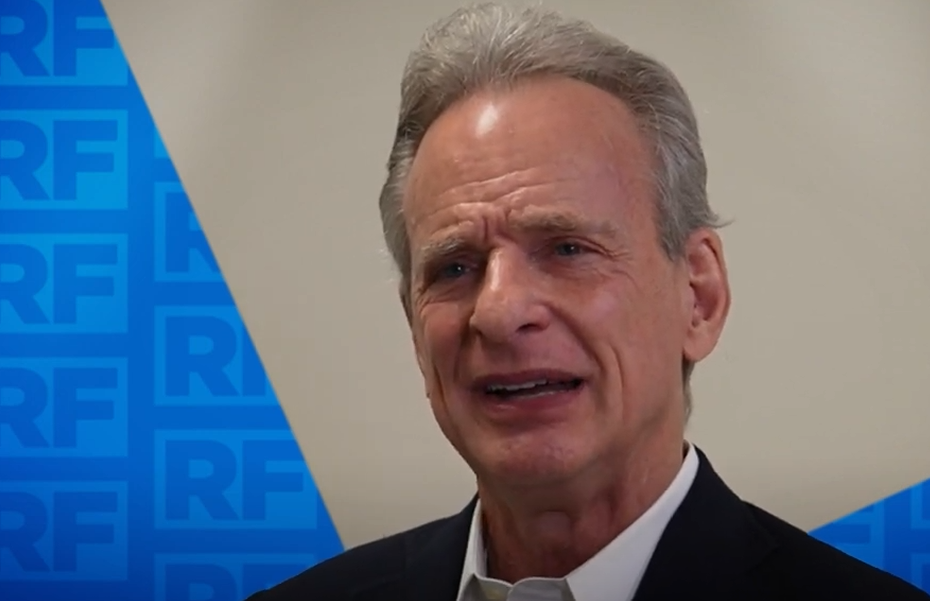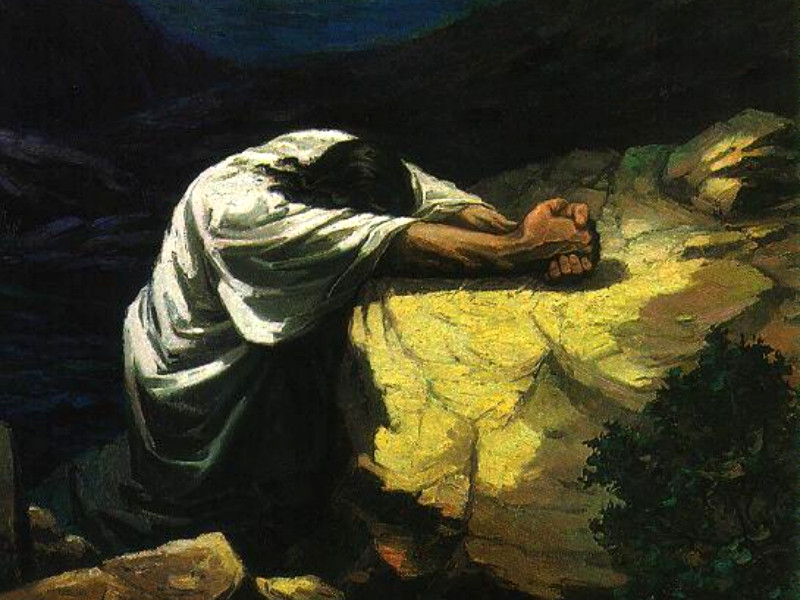Search Results for: Is God a self?
new co-authored paper: “Dormant Dispositions, Agent Value, and the Trinity”
God can’t be “perfect in love” unless he is multipersonal?
Bowman vs. Buzzard on the Shema
Today’s letter is “B.” At Bowman’s blog, Bowman and Buzzard battle about the basic building block of Old Testament belief – that YHWH is but one. But who has the better of this bitter brawl? Will Bowman best Buzzard? Or will Buzzard beat Bowman? Bowman’s a bit burned, as he feels he’s been a bit abused. But I think it best to leave that issue… Read More »Bowman vs. Buzzard on the Shema
10 steps towards getting less confused about the Trinity – #3 Take the mystery out of appeals to “mystery” – Part 4
For a few of the most serious and clever among us, mystery-mongering dies hard. They will stubbornly resist my previous attack on positive mysterianism about the Trinity, kicking back hard. I knew all along that the Trinity was going to be mysterious. And so now that I’ve discovered one way in which it is mysterious, well, I do celebrate it. You can rub my face… Read More »10 steps towards getting less confused about the Trinity – #3 Take the mystery out of appeals to “mystery” – Part 4
10 steps towards getting less confused about the Trinity – #9 – Formulas vs. Interpretations
While there have long been standard terms and sentences relating to the Trinity, there is not and has never been any clear consensus about how to understand those terms and sentences. There is agreement about what the sentences do or don’t imply (Tritheism? No. Monotheism? Yes. Ontological inequalities between the three? No.) But there is not an interpretation of the sentences themselves which is held… Read More »10 steps towards getting less confused about the Trinity – #9 – Formulas vs. Interpretations
Moses Stuart on Nicea
A trinitarian evangelical Bible scholar comments on the subordinationist theologies both of Arius and of his accusers.
Did Jesus have faith in God? – Part 1
In “How Jesus’ Not Having Faith In God Affirms His Deity” at the Thinking Christian blog, Tom Gilson argues that the New Testament, by not teaching that Jesus had faith in God, implies that Jesus is God himself. Thus, even the synoptic gospels implicitly teach that Jesus is God. Here, I’ll comment on his first post in the series; next time, his second post. In… Read More »Did Jesus have faith in God? – Part 1
SCORING THE BURKE – BOWMAN DEBATE – ROUND 6 Part 1 – BURKE
In the 6th and closing round, Burke argues from reason, scripture, and history. From reason: The Trinity doctrine, argues Burke, is inconsistent with itself. The “Athanasian” creed presents us with three, each of whom is a Lord, and yet insists that there is only one Lord. As some philosophers have pointed out, it is self-evident that if every F is a G, then there can’t… Read More »SCORING THE BURKE – BOWMAN DEBATE – ROUND 6 Part 1 – BURKE
Moreland’s and Craig’s “Trinity Monotheism” – Part 1
William Lane Craig is a respected and extremely prolific Christian philosopher. I’d give you his c.v., but it might bring the internet to a standstill. He’s sometimes a bit pugnacious in print, but is very amiable in person. And he’s extremely sharp. His trinitarian co-theorizer, J.P. Moreland, is also influential and inhumanly prolific, and is one of the clearest, best organized writers around. He’s been called a “scrappy” arguer, which is apt, and he’s also a swell guy (I took classes from him at Biola in the early 90s, and I’m grateful for how he influenced me). A Willardite, he also writes books about Christian spirituality, such as this good one. Both Craig and Moreland are well known for their many forays into the popular area, in the form of books on apologetics, public debates and such.

Nice doggie… nice doggie… What’s Cerberus here got to do with the Trinity? Keep reading.
Read More »Moreland’s and Craig’s “Trinity Monotheism” – Part 1
apologist commits to actual Trinity theory, faceplants – Part 1
An apologist spells out “the Trinity” as incoherent monotheistic tritheism.
Beyond Belief on Avatars vs. Incarnation
Here, from BBC4’s Beyond Belief podcast, is an interesting and wide-ranging discussion of avatars in Hinduism vs. catholic Incarnation claims, and also avatars in science fiction. (Alternate link, stitcher) How, you ask, does an avatar differ from an incarnation? (This is me talking now, though they say most of this in the episode.) An avatar is supposed to be God himself (Vishnu, thought of as… Read More »Beyond Belief on Avatars vs. Incarnation
SCORING THE BURKE – BOWMAN DEBATE – ROUND 4 PART 2 – BOWMAN
 In part 1 I argued that Bowman attributes a non-existent fallacy to unitarians. After this faltering start, things get better. Continuing his pre-emptive rebuttal, Bowman argues that there is nothing about the roots of the Hebrew and Greek words translated “spirit” that requires them to mean a force or energy. Surely, this is correct, and his examples show this.
In part 1 I argued that Bowman attributes a non-existent fallacy to unitarians. After this faltering start, things get better. Continuing his pre-emptive rebuttal, Bowman argues that there is nothing about the roots of the Hebrew and Greek words translated “spirit” that requires them to mean a force or energy. Surely, this is correct, and his examples show this.
In the end of his pre-emptive rebuttal, Bowman attributes this argument to unitarians:
- The Bible contains no progressive revelation concerning God.
- The OT does not reveal the Holy Spirit as a distinct divine person.
- Therefore, the NT does not reveal the Holy Spirit as a distinct divine person.
I suspect that some current day unitarians do endorse this argument. (Does Burke?) Christians of any stripe who believe in any sort of Hell, in souls, or that the NT more clearly reveals the character of the Father, would probably reject 1. For these sorts of reasons, I reject it myself. In my view progressive revelation is different from the Islamic idea of “abrogation” (later Quranic verses contradicting and cancelling out or over-ruling earlier ones). Progressive revelation doesn’t involve contradiction of something earlier asserted, but rather clarifying something previously unclear, and contradicting things one might have inferred from what was formerly asserted. But back to Bowman.
Bowman opines that the OT unclearly hints at the Spirit being a distinct divine person, but he wants to say that this truth is only first clearly revealed in John 14-16. I think this puts him far off of patristic exegesis, btw – but maybe that’s a good thing.
The real meat of Bowman’s case is his exegesis of the books of John and Acts. His first positive argument is essentially this. Jesus promised that after leaving, he’d send “another Paraclete”Read More »SCORING THE BURKE – BOWMAN DEBATE – ROUND 4 PART 2 – BOWMAN
Steve Hays vs. Lexicons, deep thoughts on OT “binitarianism”
More lessons on how not to do apologetics, from a Master.
the evolution of my views on the Trinity – part 7
Dallas Willard’s The Divine Conspiracy – its effect on my thinking.
Roger Olson asks: How important is the doctrine of the Trinity?
Theologian Roger Olson asks, How important is the doctrine of the Trinity? He seems to hold, with many others, that …the doctrine of the Trinity is crucial, essential, indispensable to a robust and healthy Christian view of God. But, The problem is, of course, that many, perhaps most, Christians have little or no understanding of the doctrine of the Trinity. And they couldn’t care less. Indeed.… Read More »Roger Olson asks: How important is the doctrine of the Trinity?
Is God greater than any man?
“God is greater than man.“ Job 33:12. Every man. All men. Everywhere. Beginning to end. Forever. — John Piper (@JohnPiper) December 17, 2015 My reply is: let us consider this inconsistent triad. Just as a matter of logic, not all three can be true – at least one must be false. But which? Jesus is God. God is greater than any man. Jesus is a… Read More »Is God greater than any man?
William Lane Craig in the Chronicle of Higher Education
Here. On the whole, a well done piece. Craig is indeed a fearsome debater, and a bold and insightful scholar. His devotion to apologetics makes him a bit uncool among professional philosophers. But I would guess that his work is probably read by more average people – Christians, atheists, Muslims, and who-knows-what – than any living philosopher. The reason is that it has many good… Read More »William Lane Craig in the Chronicle of Higher Education

















